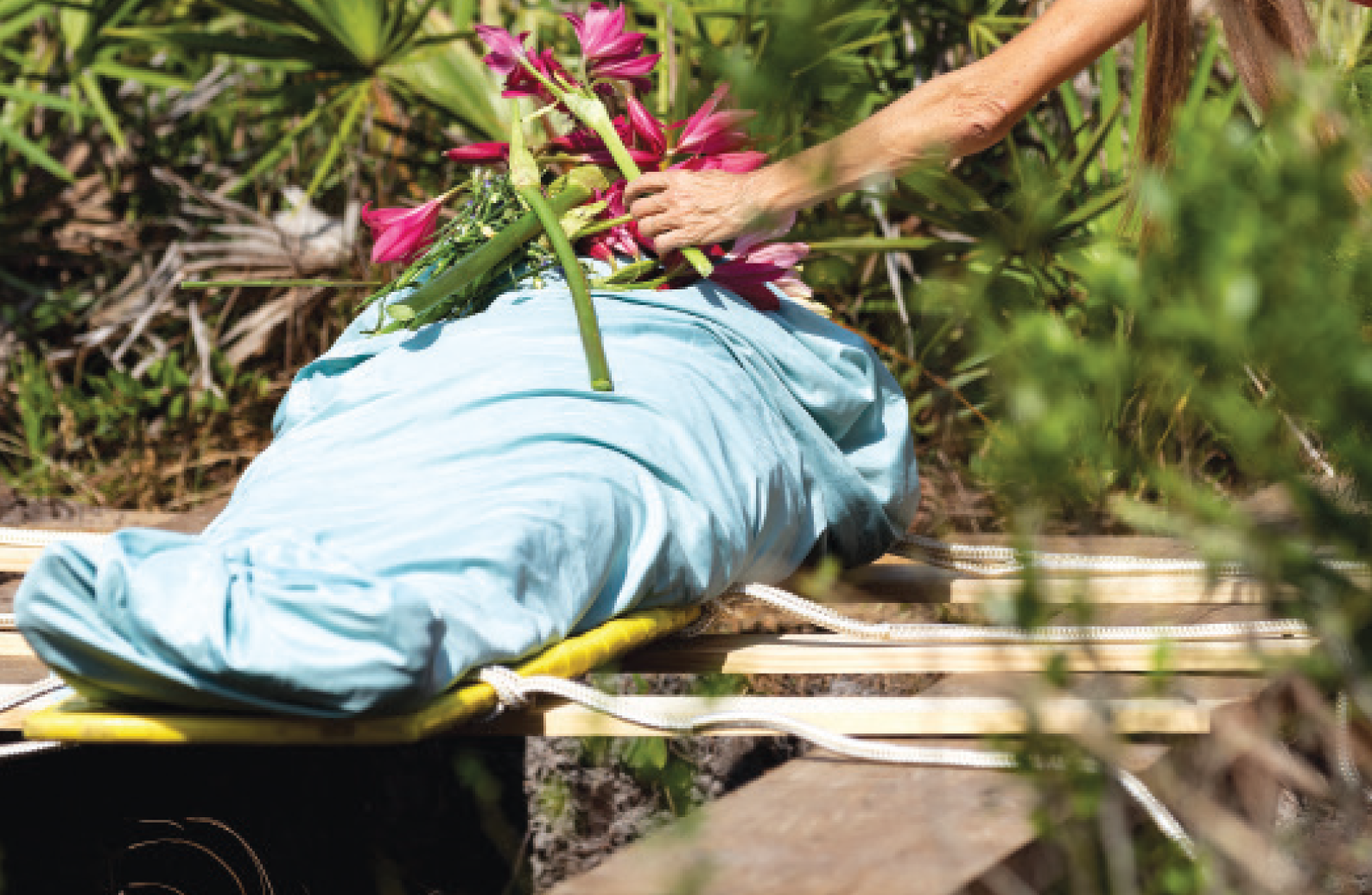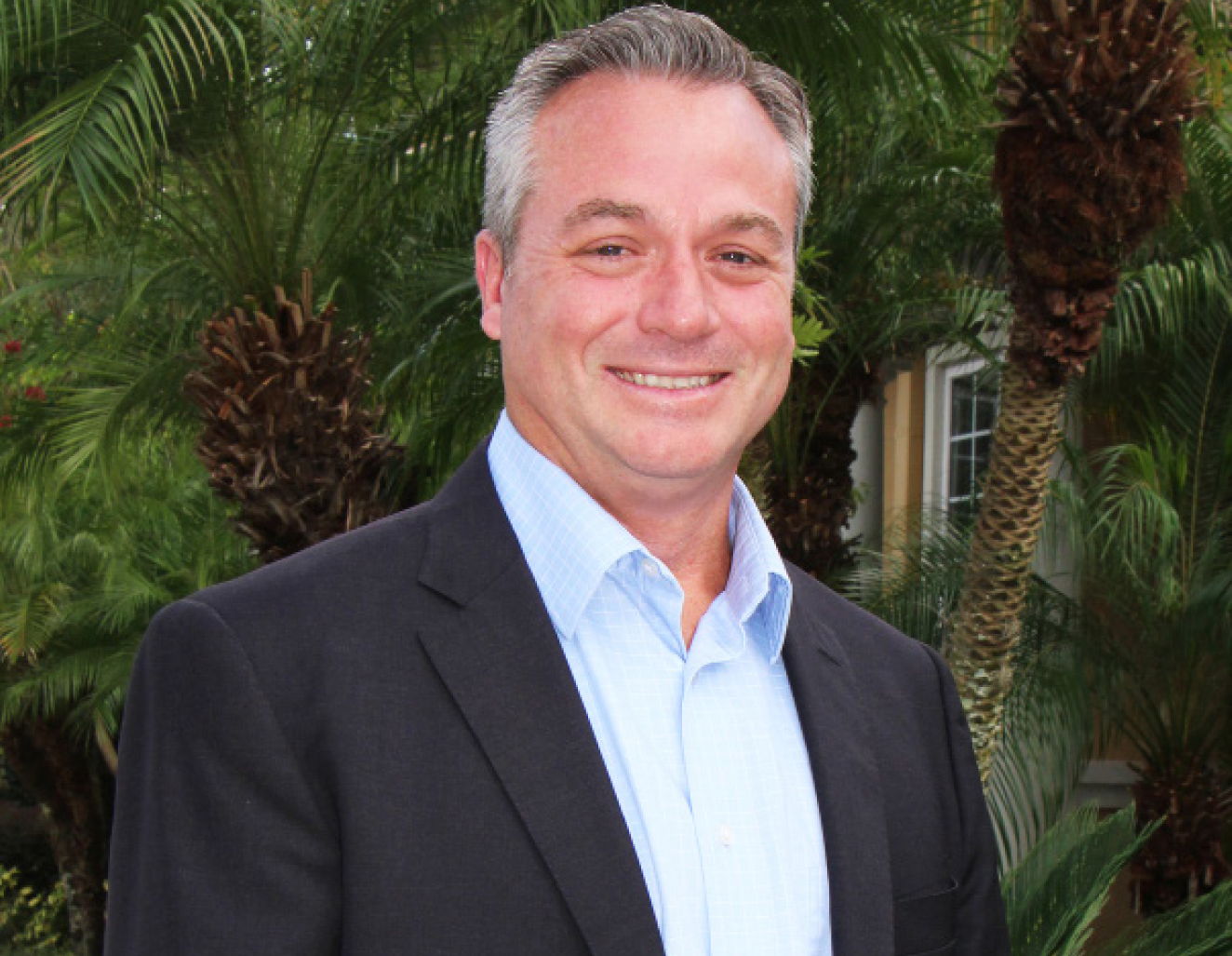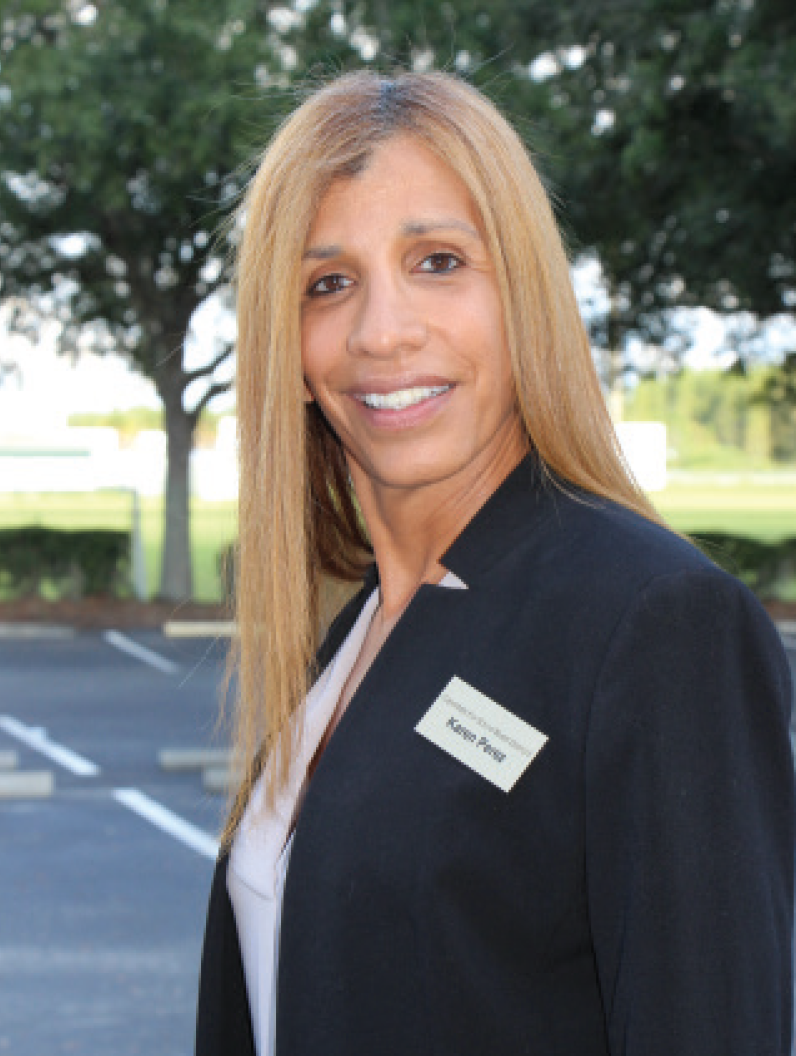 When Amy Morrow’s mom passed away a few months ago, she says it was the darkest time in her life.
When Amy Morrow’s mom passed away a few months ago, she says it was the darkest time in her life.
In the midst of her pain, Amy found peace and beauty at Heartwood Preserve Conservation Cemetery.
Located on 41 acres of serene, old Florida woods bordering the 18,000-acre Jay B. Starkey Wilderness Preserve in Trinity, just a short drive west of Wesley Chapel, the body of Amy’s mom, Lisa Weir, was laid to rest in a natural, “green” burial.
“It was the worst point in my entire life,” says Amy, “but Laura and Diana were amazing, and the site itself is just glorious.”
Laura Starkey is the founder and executive director of Heartwood Preserve, and Diana Sayegh is the manager.
Laura grew up on the land that is now Heartwood Preserve and the adjoining wilderness preserve, back when it was all part of her family’s expansive cattle ranch.
Heartwood Preserve was Laura’s idea. One of just a few conservation cemeteries in the entire state of Florida, Heartwood Preserve provides environmentally-friendly options for people looking for a more natural burial.
 “Not only are we are providing a natural burial option for those who don’t want all the fancy bells and whistles of a modern burial with an expensive casket and vault,” Laura explains, “but we’re also really contributing to the permanent conservation of this ecosystem. We are both literally and figuratively becoming part of this land.”
“Not only are we are providing a natural burial option for those who don’t want all the fancy bells and whistles of a modern burial with an expensive casket and vault,” Laura explains, “but we’re also really contributing to the permanent conservation of this ecosystem. We are both literally and figuratively becoming part of this land.”
Amy says it was the perfect option for her “hippie” mom. She says her mom didn’t have many requests for her funeral, except that she wanted those who attended to wear bright colors, and she wanted Queen’s “Fat Bottomed Girls” to be played while her body was carried.
Heartwood Preserve was happy to accommodate her requests.
“If green burial were a person, it would be my mother,” says Amy. “If Heartwood Preserve were a person, it would be my mother. It felt so peaceful and right to place my mother at Heartwood Preserve.”
Saving Florida’s Land
First and foremost, the cemetery is about conserving the precious longleaf pine flatwoods and cypress dome wetlands ecosystems of the preserve.
“We invite people to come and take a walk or a hike and get some fresh air,” Diana says. “You can park for free, use our picnic benches, and experience nature. There are woodpeckers, owls and butterflies, and we have free events, such as silent meditation walks, yoga and even frog-listening events. This place is gorgeous, and we want the community to experience it.”
Laura explains that using the land as a conservation cemetery is a tool that will allow it to be preserved forever.
 “Land conservation is kind of tricky,” she says. “Sometimes, you think you just buy the land and hold on to it, but you have to manage it and maintain it, including controlled burns, managing invasive species and different things you have to do to keep it healthy and protected. I am always looking for tools to do that. Sometimes land may become a state or county park, but there are other ways to do that, too.”
“Land conservation is kind of tricky,” she says. “Sometimes, you think you just buy the land and hold on to it, but you have to manage it and maintain it, including controlled burns, managing invasive species and different things you have to do to keep it healthy and protected. I am always looking for tools to do that. Sometimes land may become a state or county park, but there are other ways to do that, too.”
She explains that there are layers of protection in place to ensure that Heartwood Preserve will always remain a natural burial preserve, with no above-ground burials, such as in a mausoleum, and a lower density than a traditional cemetery. In addition, when someone purchases a space at Heartwood Preserve, a portion of that fee goes to permanently protecting that ecosystem.
Heartwood Preserve doesn’t allow embalming or vaults, neither of which are required by law. “The full body can be placed into the ground, wrapped in a shroud or buried in a biodegradable, natural casket,” Diana explains. “We also allow cremated remains to be buried directly in the ground or in a biodegradable urn, but we don’t scatter ashes.”
2nd Birthday Celebration!
On Saturday, November 3, Heartwood Preserve celebrated the two-year anniversary of its opening with an Open House celebration, featuring family-friendly crafts, games and, of course, a birthday cake.
A groundbreaking ceremony was held for brand-new Welcome Center that will soon be built.
The Welcome Center will be the new permanent home for Heartwood’s offices, which have been housed in a temporary mobile office trailer for the past two years. Laura says the building will be energy-efficient and will include offices, bathrooms, a reception area and a meeting room where families may hold celebrations of life or other small-to-medium sized gatherings.
Since opening in 2016, Heartwood Preserve has held 16 burials, including six full-body burials and 10 cremation burials.
The number of people pre-planning for a burial at Heartwood Preserve continues to grow. Diana says Heartwood Preserve allows for such pre-planning, which sets it apart from other conservation cemeteries in Florida.
“Like making a will, pre-planning for your cremation or burial is a gift to your family,” says Diana. “Your family is not left with the burden of the cost or the decision making. They have peace of mind for when that time comes.”
Amy Morrow is grateful that her mom did just that at Heartwood Preserve. “I’ve been to a lot of funerals,” Amy says. “Death is a hard thing, but for me, this was so much more relaxed and easier to deal with.”
Amy says burial at Heartwood Preserve goes along with many trends today of people trying to live more natural lives.
“Going directly back into Mother Earth is appealing to a lot of people,” she says. “I know it is to me.”
Laura and Diana encourage anyone who is interested to call to arrange a private tour of Heartwood Preserve. While visitors are always welcome, they can give you personal attention if an appointment is made in advance.
Heartwood Preserve Conservation Cemetery is located at 4100 Starkey Blvd. The gates are open Mon.-Sat., 9:30 a.m.–4:30 p.m., and 11 a.m.–4:30 p.m. on Sun.
For more information or to schedule an in-person appointment to discuss burial at Heartwood Preserve, call (727) 376-5111, or visit HeartwoodPreserve.com.











